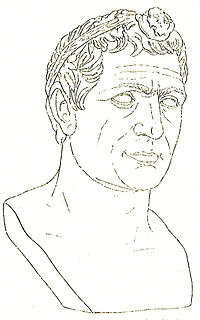 W
WAgathocles was a Greek tyrant of Syracuse and self-styled king of Sicily.
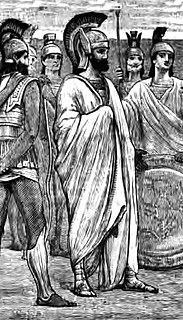 W
WAgesilaus II, was a king (basileus) of the ancient Greek city-state of Sparta and a member of the Eurypontid dynasty ruling from 398 to about 360 BC, during most of which time he was, in Plutarch's words, "as good as though commander and king of all Greece", and was for the whole of it greatly identified with his country's deeds and fortunes. Small in stature and lame from birth, Agesilaus became ruler somewhat unexpectedly in his mid-forties. His reign saw successful military incursions into various states in Asia Minor, as well as successes in the Corinthian War; however, several diplomatic decisions resulted in Sparta becoming increasingly isolated prior to his death at the age of 84 in Cyrenaica.
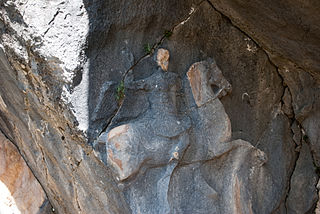 W
WAlcetas, was the brother of Perdiccas and the son of Orontes from Orestis. He is first mentioned as one of Alexander the Great's generals in his Indian expedition.
 W
WAlexander I of Epirus, also known as Alexander Molossus, was a king of Epirus (343/2–331 BC) of the Aeacid dynasty. As the son of Neoptolemus I and brother of Olympias, Alexander I was an uncle of Alexander the Great. He was also an uncle of Pyrrhus of Epirus.
 W
WAlexander III of Macedon, commonly known as Alexander the Great, was a king (basileus) of the ancient Greek kingdom of Macedon and a member of the Argead dynasty. He was born in Pella in 356 BC and succeeded his father Philip II to the throne at the age of 20. He spent most of his ruling years on an unprecedented military campaign through western Asia and northeast Africa, and by the age of thirty, he had created one of the largest empires of the ancient world, stretching from Greece to northwestern India. He was undefeated in battle and is widely considered one of history's most successful military commanders.
 W
WAntipater was a Macedonian general and statesman under kings Philip II of Macedon and Alexander the Great, and father of King Cassander. In 320 BC, he became regent of all of Alexander the Great's Empire but died the next year; he had named an officer named Polyperchon as his successor instead of his son Cassander, and a two-year-long power struggle ensued.
 W
WArchidamus III, the son of Agesilaus II, was king of Sparta from 360 BC to 338 BC.
 W
WArchytas was an Ancient Greek philosopher, mathematician, astronomer, statesman, and strategist. He was a scientist of the Pythagorean school and famous for being the reputed founder of mathematical mechanics, as well as a good friend of Plato.
 W
WAsander or Asandros was the son of Philotas and brother of Parmenion and Agathon. He was a Macedonian general under Alexander the Great, and satrap of Lydia from 334 BC as well as satrap of Caria after Alexander's death. During Alexander's reign Asander' s position suffered for a period following Parmenion's execution, he was sent to Media to gather reinforcements during this time, and a year later was sent to Bactra.
 W
WBalakros, also Balacrus, the son of Nicanor, one of Alexander the Great's "Somatophylakes" (bodyguards), was appointed satrap of Cilicia after the Battle of Issus, 333 BC. He succeeded to the last Achaemenid satrap of Cilicia, Arsames.
 W
WCleomenes III was one of the two kings of Sparta from 235 to 222 BC. He was a member of the Agiad dynasty and succeeded his father, Leonidas II. He is known for his attempts to reform the Spartan state.
 W
WEpaminondas was a Greek general of Thebes and statesman of the 4th century BC who transformed the Ancient Greek city-state of Thebes, leading it out of Spartan subjugation into a pre-eminent position in Greek politics. In the process he broke Spartan military power with his victory at Leuctra and liberated the Messenian helots, a group of Peloponnesian Greeks who had been enslaved under Spartan rule for some 230 years after being defeated in the Messenian War ending in 600 BC. Epaminondas reshaped the political map of Greece, fragmented old alliances, created new ones, and supervised the construction of entire cities. He was also militarily influential and invented and implemented several major battlefield tactics.
 W
WEumenes of Cardia was a Greek general and satrap. He participated in the Wars of Alexander the Great serving as both Alexander’s personal secretary and as a battlefield commander. He later was a participant in the Wars of the Diadochi as a supporter of the Macedonian Argead royal house. He was executed after the Battle of Gabiene in 316 BC.
 W
WEumenes II surnamed Soter meaning "Savior" was a ruler of Pergamon, and a son of Attalus I Soter and queen Apollonis and a member of the Attalid dynasty of Pergamon.
 W
WGelon also known as Gelo, son of Deinomenes, was a 5th-century BC ruler of Gela and Syracuse and first of the Deinomenid rulers.
 W
WHermocrates was an ancient Syracusan general during the Athenians' Sicilian Expedition in the midst of the Peloponnesian War. He is also remembered as a character in the Timaeus and Critias dialogues of Plato.
 W
WOlympiodoros was a military leader (General) of ancient Greece. His capacity as a savior of Athens and his self-confident power and serious engagement during political crises were emphasized. He was elected Strategos. He took part in the established Athenian coalition government with Philippides of Paiania.. He commanded a body of three hundred picked men at the Battle of Plataea, who were engaged in a service from which all the other Greeks shrank. He was an Athenian general who, when Athens was attacked by Cassander, compelled the latter to withdraw his forces. He subsequently rid the city of Macedonian garrison which Demetrius had stationed there, and successfully defended Athens against Demetrius himself.
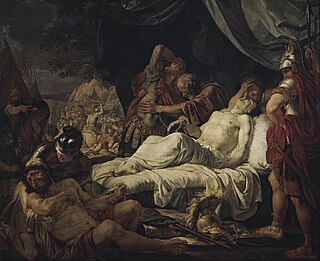 W
WPelopidas was an important Theban statesman and general in Greece, instrumental in establishing the mid-fourth century Theban hegemony.
 W
WPhilip II of Macedon was the king (basileus) of the kingdom of Macedon from 359 BC until his assassination in 336 BC. He was a member of the Argead dynasty of Macedonian kings, the third son of King Amyntas III of Macedon, and father of Alexander the Great and Philip III. The rise of Macedon, its conquest and political consolidation of most of Classical Greece during the reign of Philip II was achieved in part by his reformation of the Ancient Macedonian army, establishing the Macedonian phalanx that proved critical in securing victories on the battlefield. After defeating the Greek city-states of Athens and Thebes at the Battle of Chaeronea in 338 BC, Philip II led the effort to establish a federation of Greek states known as the League of Corinth, with him as the elected hegemon and commander-in-chief of Greece for a planned invasion of the Achaemenid Empire of Persia. However, his assassination by a royal bodyguard, Pausanias of Orestis, led to the immediate succession of his son Alexander, who would go on to invade the Achaemenid Empire in his father's stead.
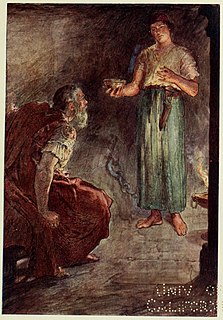 W
WPhilopoemen was a skilled Greek general and statesman, who was Achaean strategos on eight occasions.
 W
WPhoenix was a native of Tenedos, who held a high rank in the army of Eumenes, 321 BC.Battle of the Hellespont
 W
WPyrrhus was a Greek king and statesman of the Hellenistic period. He was king of the Greek tribe of Molossians, of the royal Aeacid house, and later he became king of Epirus. He was one of the strongest opponents of early Rome. Several of his victorious battles caused him unacceptably heavy losses, from which the term Pyrrhic victory was coined.
 W
WTimoleon, son of Timodemus, of Corinth was a Greek statesman and general.
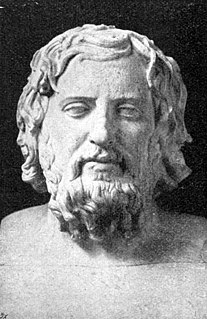 W
WXenophon of Athens was an Athenian historian, philosopher, and soldier. He became commander of the Ten Thousand at about 30, and as the military historian Theodore Ayrault Dodge wrote, "the centuries since have devised nothing to surpass the genius of this warrior". He established precedents for many logistical operations, and was among the first to use flanking maneuvers and feints. Briefly a student of Socrates, Xenophon is best known for his historical works. The Hellenica, which continues directly from the final sentence of Thucydides' History of the Peloponnesian War, covers the final seven years and the aftermath of the Peloponnesian War, and ends in 362 BC with the second Battle of Mantinea, which brought Sparta's dominance of the Hellenic world to an end. The Anabasis recounts his own role, as one of the "Ten Thousand", in Cyrus the Younger's failed campaign to claim the Persian throne from his brother Artaxerxes II of Persia, and in what happened to the mercenaries after Cyrus was killed. Xenophon also wrote the Memorabilia, in which he pays tribute to his mentor Socrates, and the Apology of Socrates to the Jury, which recounts the philosopher's trial in 399 BC.